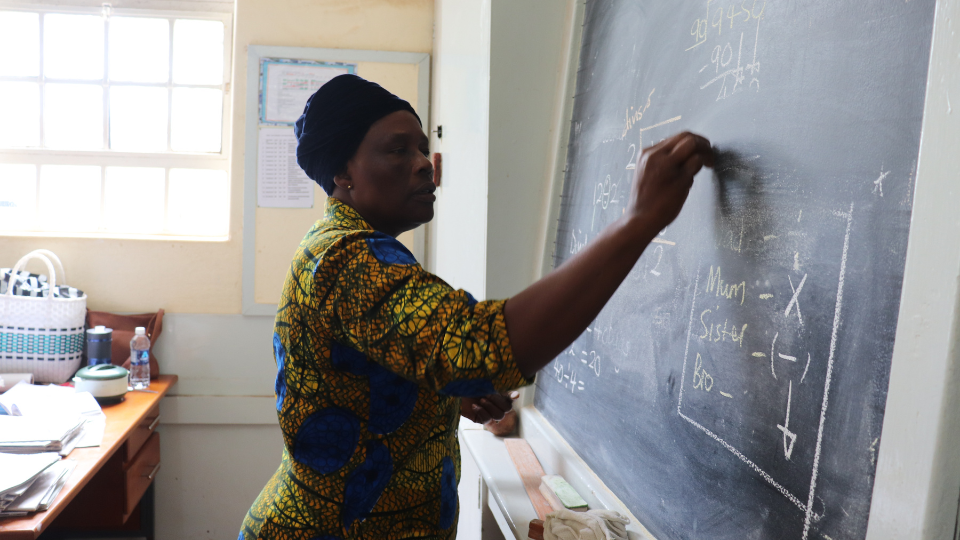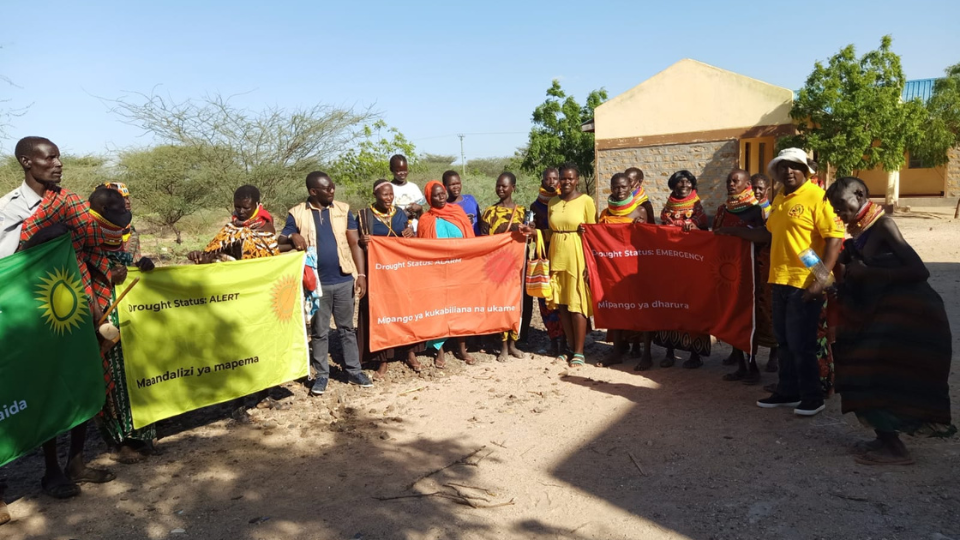We have been working in fragile and conflict-affected states, as well as contexts of forced displacement, for more than 20 years, from providing large-scale post-conflict education capacity building in Cambodia, Rwanda and Somalia, to immediate technical assistance in Ethiopia, Liberia, Libya, Malawi, Sudan, and Uganda, among others. We currently work to support the training of Syrian refugee teachers in Lebanon and Jordan, building on their existing skillsets in the teaching of English as a medium of instruction. In addition, we have developed a notable evidence base on education for refugees and internally displaced persons, to facilitate dialogue among policymakers and inform our implementation of education programmes in refugee and conflict-affected states. This continues to be a focus of our research work: in recent years, we have published reports on teacher management in refugee settings in Jordan, Kenya, and Ethiopia, in partnership with IIEP-UNESCO. All of this experience has provided us with important insights into some of the key challenges facing teachers of refugees, and the support they need to help their students thrive.
Challenges in refugee education
Many refugee settings face a wide variety of challenges to education provision and the teaching received by refugee children is all too often of low quality. In addressing this issue, the questions of who teaches refugee students, the challenges they face, and the support they require are central.
Our previous research indicates that teachers who are themselves part of the refugee community should at least play a part in education provision for refugee learners. Many host countries are aware of this and have strategies in place to utilise refugee teachers to support national teachers, as is the case (to some extent) in Lebanon, Jordan, Turkey, Kenya and Uganda. However, in some settings, many refugee teachers are unqualified. In Kenya, for example, while 99% of refugee teachers surveyed in our research had completed secondary education, only 42% held a teaching qualification. In Ethiopia, our researchers came across lower primary teachers who were themselves attending upper primary classes. Even in settings where most teachers are qualified, many are unable to access professional development opportunities to improve their practice. Some may have been refugees for many years and been unable to access training or skills development throughout this period.
We should also note that many refugee teachers face further challenges relating to pay, leading to high rates of attrition in the teacher workforce – and therefore disruption to learning. In Jordan, teachers working with refugees are largely employed on a daily paid basis with no entitlement to leave or benefits, creating potential for instability in the teacher workforce. Meanwhile, in camp settings in Ethiopia and Kenya, refugee teachers are paid a set incentive, whether they work as teachers or choose to work in other sectors. With class sizes sometimes reaching over 100 students, and lesson planning and marking commitments leading to long working hours, attrition in the teaching workforce is unsurprisingly high as teachers choose to move to other – equally paid but less stressful – sectors.
Supporting refugee teachers: training, professional development and support
Despite these challenges, huge numbers of refugee teachers continue to do a remarkable job in the face of hugely challenging circumstances. That said, recognition of and targeted support for these professionals and the vital work that they do are central to responding to the challenges described above.
Among the most important lines of support are training and professional development, to ensure that teachers of refugees are both qualified and equipped for the important role they play. Professional development opportunities for refugee teachers will necessarily vary by context. Where teachers are qualified, but may have missed out on development opportunities for many months or years, refresher training on key aspects of teaching and pedagogy may be most appropriate. In such cases, there may be an argument for designing professional development which identifies and maps out teachers’ existing knowledge, skills and competencies, and instils the importance of continuous development and professional learning.
Where qualification of teachers is an issue, investment will be required – possibly from donors – in programmes to provide recognised teaching qualifications for refugees and host communities, and to enable qualified teachers to access relevant professional development opportunities. Such programmes may involve reaching out to teachers to encourage them to apply for help in equating or levelling up teaching qualifications obtained elsewhere to a relevant teaching qualification within the host country. They may also need assistance to help them overcome any logistical challenges (e.g. travel or administrative fees) in this process. In other cases, training programmes may need to provide help for unqualified teachers to meet the requirements – both academic and financial – to enrol in recognised teacher training colleges to gain qualified teacher status for the first time. Both strategies could be accompanied by incentives for teaching for a minimum number of years following qualification, to help with issues of teacher workforce attrition.
There is also a need to align teaching in refugee communities with national education systems – perhaps by following national professional development frameworks – to ensure that all learners in the country receive the same quality of education, regardless of refugee status. This is particularly important in light of commitments to inclusion made by a number of countries under the Comprehensive Refugee Response Framework and Global Compact on Refugees. Such alignment includes appropriate training on the national curriculum in the host country, as well as any local or regional curricula, teaching practices and SEND guidelines (which could take place on an ongoing basis within community schools). For example, in the Lebanese national school system, many subjects are taught in English at secondary level, so refugee and NGO teachers in EDT’s Alexandria Schools Trust programme receive training and development in the use of English in their teaching. This enables learners in NGO schools to transition into the national school system as they become accustomed to – and able to understand – English as a medium of instruction.
Across much of this professional development, the importance of peer support and professional learning communities or communities of practice is becoming increasingly evident. These communities can help refugee teachers to improve their practice as well as providing important avenues of support from other educators, both within and outside the refugee community. There is some consensus that collaborative learning within such groups is a highly promising approach to professional development. Moreover, these learning communities offer increased opportunities for teachers’ voices to be heard, enabling them to feel ownership over and agency within their work environment.
Support for refugee teachers is, however, not confined to professional development activities and peer support. Improving working conditions and terms of employment is also critical. Standardising contractual arrangements and pay scales to align with national norms, in line with the Djibouti Declaration, is likely to provide greater financial security for refugee teachers and may help to reduce workforce attrition.
Given their unique role teaching learners in some of the world’s most vulnerable communities, it is vital that refugee teachers are appropriately supported. To find out more about our research on teacher management in refugee settings, read our joint reports with IIEP-UNESCO, available at the links below, or watch our video series, ‘We teach here’, based in Ethiopia, Kenya and Uganda.
To find out more about our Alexandria Schools Trust programme, through which we work with refugee teachers in Lebanon, click here, or please contact our research and consultancy team.




